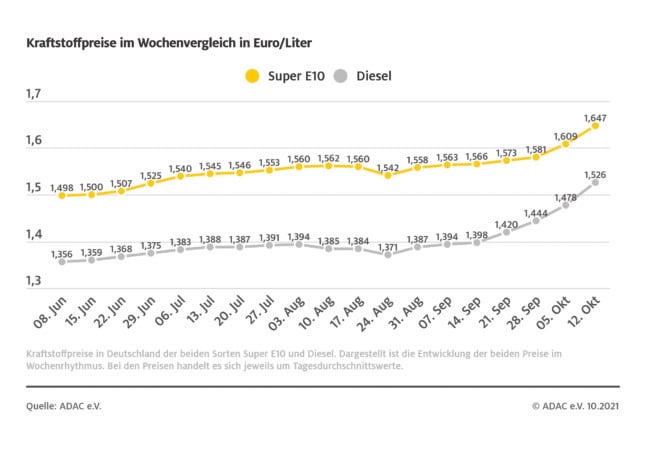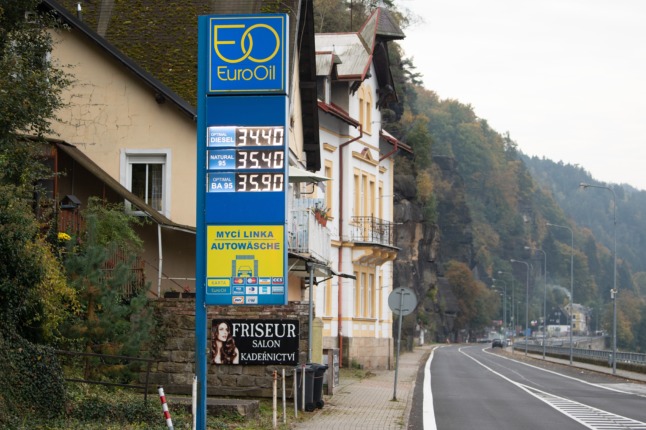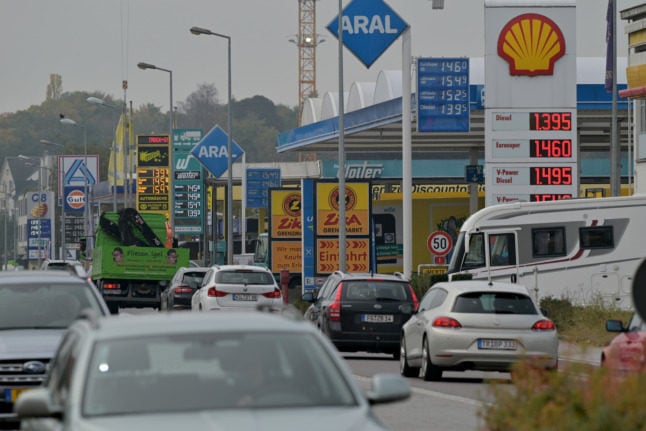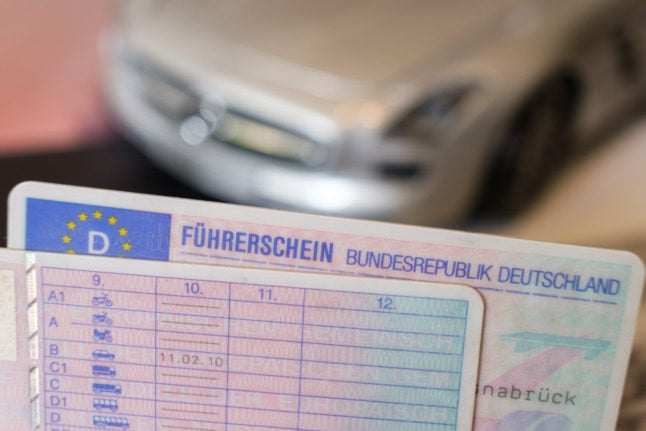What’s happening?
On Monday, Europe’s largest motor association, the ADAC, revealed that the price of Diesel had soared to unprecedented highs.
As of Sunday, drivers of Diesel cars and vans in Germany have been asked shell out €1.555 per litre to refill their vehicles. The previous record price, which was set on August 26th, 2021, was €1.554 per litre.
Regular petrol prices have also been subject to the same upwards curve, with prices per litre hitting €1.667 per litre on Sunday – just 4.2 cents short of its previous record price of €1.709.
READ ALSO: Drivers in Germany face record fuel costs
As the below chart from ADAC shows, the price of both commodities has been rising for several months, following an initial slump when the Covid pandemic first hit. Experts believe this is due to both the price of crude oil and the impact of a strong US dollar on Eurozone imports.

The rising price of fuel isn’t the only strain on consumers in Germany – living costs are rising across the board. Inflation (the cost of everyday goods) has risen dramatically this year, while supply issues are also causing electricity and energy costs to spike.
All of this means that households in Germany will be feeling the squeeze this winter, and car drivers will have an additional drain on their wallets if petrol and Diesel costs continue to rise.
Can the government do anything to help?
There are numerous ways that governments on both the European and national level. One is to cut certain government levies that contribute to higher prices at the pump.
For every litre of Diesel sold at the current price, €0.25 of the cost is VAT, around €0.47 is mineral oil tax and around 6 to 8 cents is CO2 tax. Meanwhile, for every litre of petrol, around €0.31 is VAT, approximately €0.65 is mineral oil tax and a similar figure – of around 6 to 8 cents – in CO2 tax.
The Association of Small and Medium-Sized Businesses (MSV) is pushing for cuts on the highest of the levies – the mineral oil tax – in order to ease the pressure on both businesses in the sector and their customers.
“From the point of view of small and medium-sized enterprises, the mineral oil tax should be temporarily lowered and the commuter allowance noticeably increased,” the chief economist of the BVMW, Hans-Jürgen Völz, told the Funke Media Group.
The explosion in fuel prices is a massive burden on the economy, endangering jobs, growth and prosperity, Völz added. If left unchecked, it could even lead to a “veritable economic crisis” in Germany, he said.
Is this likely to happen?
It’s not unlikely – though it could be controversial.
Last Thursday, the government opted to cut the EEG levy – a green tax used to fund the expansion of renewable energy sources – in response to spiralling energy costs. Some of the tax income will be replaced by government subsidies, though the cuts are still likely to have an impact on the renewable energy sector.
READ ALSO: Households in Germany to get some relief on electricity bills
Over the coming months, this should help to dampen the impact of rising electricity bills, though targeting climate-friendly taxes has caused consternation among those who believe in taking a different route.
Writing in Handelsblatt on Monday, columnist Kathrin Witsch argued that, while climate change measures aren’t the reason for price rises, they could nevertheless end up falling victim to them as governments rush to slash green levies.

A petrol station displays prices in Czech krona on the border between Germany and the Czech Republic. Photo: picture alliance/dpa/dpa-Zentralbild | Sebastian Kahnert
“The reason for the price surge for energy and raw materials is neither the CO2 price nor the e-car subsidy or the nuclear phase-out,” Witsch wrote. “Prices are rising worldwide because the economy is recovering much faster than expected after the pandemic and demand is accordingly higher than planned.”
Since renewable energy is generally cheaper, it should now have a competitive advantage over less environmentally friendly types of energy, she argued. However, Germany’s failure to expand wind and solar energy quickly enough has given it few options for tackling the oncoming crisis.
With car drivers now in focus, moves to slash taxes on climate-polluting substances like Diesel and petrol could also put the government in the firing line in the coming months.
What are the next steps?
With coalition talks kicking off between the Greens, Social Democrats (SPD) and Free Democratic Party (FDP) this week, petrol and energy price hikes are likely to be a subject of discussion.
To work out how to do this, they could look to Europe, where a number of national governments have already introduced measures to ease pressure on consumers.
In the meantime, Germany’s outgoing transport secretary, Andreas Scheuer (CSU), is pushing hard for caps on fuel prices – which could be achieved through a mixture of tax cuts and industry regulation.
For lobbyists such as Völz, however, the German government still hasn’t gone far enough. Speaking to the Funke Media Group on Tuesday, he called on politicians to be clear about how and to what extent companies and consumers could be relieved from ever-higher prices.
READ ALSO: Why everything is suddenly getting so expensive in Germany



 Please whitelist us to continue reading.
Please whitelist us to continue reading.
Member comments